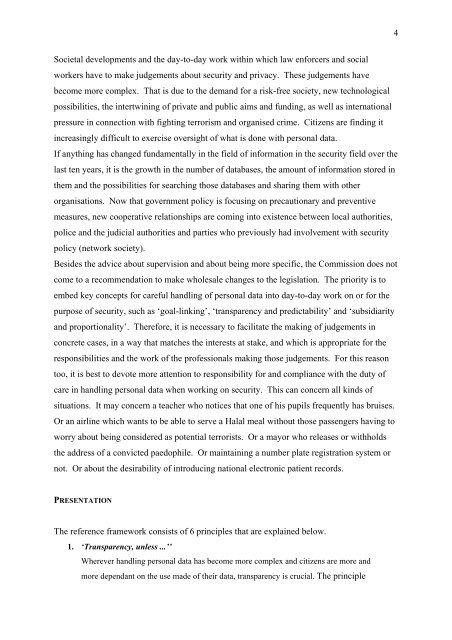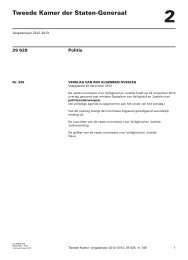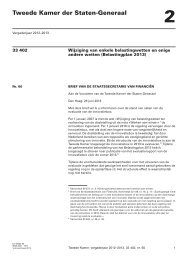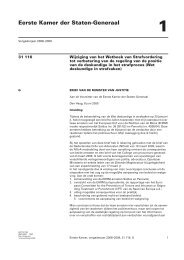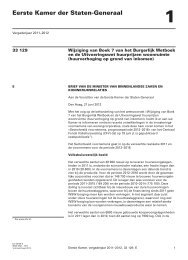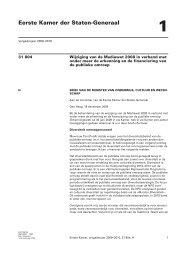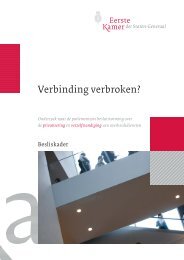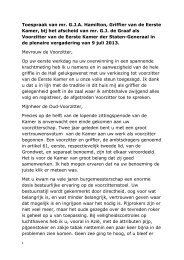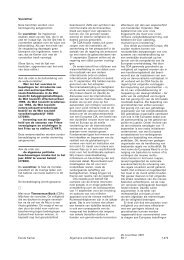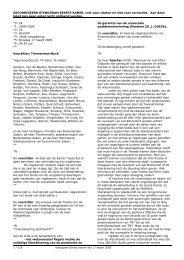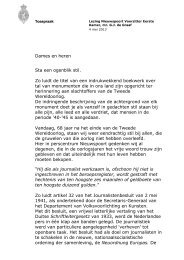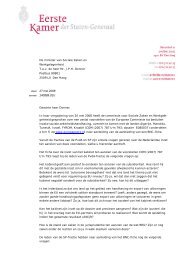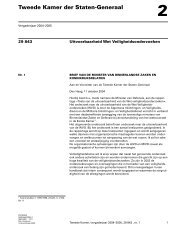Rapport Commissie Brouwer: 'Gewoon doen' - Ngfg
Rapport Commissie Brouwer: 'Gewoon doen' - Ngfg
Rapport Commissie Brouwer: 'Gewoon doen' - Ngfg
You also want an ePaper? Increase the reach of your titles
YUMPU automatically turns print PDFs into web optimized ePapers that Google loves.
Societal developments and the day-to-day work within which law enforcers and social<br />
workers have to make judgements about security and privacy. These judgements have<br />
become more complex. That is due to the demand for a risk-free society, new technological<br />
possibilities, the intertwining of private and public aims and funding, as well as international<br />
pressure in connection with fighting terrorism and organised crime. Citizens are finding it<br />
increasingly difficult to exercise oversight of what is done with personal data.<br />
If anything has changed fundamentally in the field of information in the security field over the<br />
last ten years, it is the growth in the number of databases, the amount of information stored in<br />
them and the possibilities for searching those databases and sharing them with other<br />
organisations. Now that government policy is focusing on precautionary and preventive<br />
measures, new cooperative relationships are coming into existence between local authorities,<br />
police and the judicial authorities and parties who previously had involvement with security<br />
policy (network society).<br />
Besides the advice about supervision and about being more specific, the Commission does not<br />
come to a recommendation to make wholesale changes to the legislation. The priority is to<br />
embed key concepts for careful handling of personal data into day-to-day work on or for the<br />
purpose of security, such as ‘goal-linking’, ‘transparency and predictability’ and ‘subsidiarity<br />
and proportionality’. Therefore, it is necessary to facilitate the making of judgements in<br />
concrete cases, in a way that matches the interests at stake, and which is appropriate for the<br />
responsibilities and the work of the professionals making those judgements. For this reason<br />
too, it is best to devote more attention to responsibility for and compliance with the duty of<br />
care in handling personal data when working on security. This can concern all kinds of<br />
situations. It may concern a teacher who notices that one of his pupils frequently has bruises.<br />
Or an airline which wants to be able to serve a Halal meal without those passengers having to<br />
worry about being considered as potential terrorists. Or a mayor who releases or withholds<br />
the address of a convicted paedophile. Or maintaining a number plate registration system or<br />
not. Or about the desirability of introducing national electronic patient records.<br />
PRESENTATION<br />
The reference framework consists of 6 principles that are explained below.<br />
1. ‘Transparency, unless ...’’<br />
Wherever handling personal data has become more complex and citizens are more and<br />
more dependant on the use made of their data, transparency is crucial. The principle<br />
4


